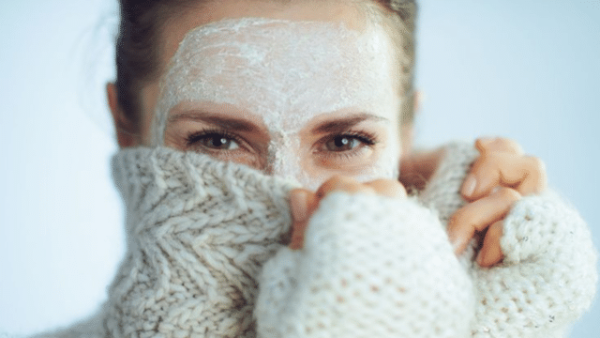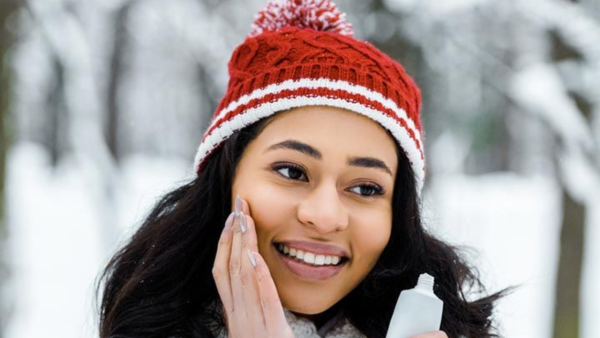
Winter is a time when the scorching heat is finally over, but it also brings its own set of challenges for your skin. Cold air, low humidity, and indoor heating can strip the skin of its natural moisture, causing dryness, irritation, and other skin problems. Let's discuss how to keep your skin safe during the cold months and address some common winter skin problems.
Dry Skin and Itchiness
One of the most common skin problems during wintertime is dryness. The cold, dry air drains moisture from the skin, leaving it feeling flaky, rough, and itching, especially on the face, hands, and legs. As the temperature drops, it becomes increasingly ineffective for the skin barrier to function, which means that moisture retention becomes a problem too. Hence, the best approach would be to apply a moisturizer thick enough to renew the skin's natural oils and then layer that heavy emollient cream right after bathing, even while the skin is still slightly damp, to seal moisture in.
 Eczema and Dermatitis
Eczema and Dermatitis
Winter can be particularly rough for those suffering from eczema or perhaps psoriasis or other types of dermatitis. The cold, dry air makes the skin feel worse by drying it out leading to dry and cracked skin with an inflamed feeling. Try to avoid long hot showers as they dry out the skin; the showers should be lukewarm. Use mild, fragrance-free soaps or bars, use gloves and soft breathable fabrics to prevent irritation, and use heavy-duty moisturizers to keep the skin hydrated.
Chapped Lips
Chapped lips are one of the most common ailment types during winter. The soft-skinned surfaces over your lips dry up and break cracks thus becoming sore and painful fissures. This happens due to the lack of moisture in the cold air. To get rid of this, it is important to apply a lip balm containing petroleum jelly. This helps to lock in the moisture that will create a protective barrier against the harsh weather. Reapplication should be done throughout the day to ensure your lips are hydrated and protected from further drying just keeping them soft and smooth all the season.
Rosacea and Skin Redness
For people with rosacea, sudden changes in temperature and cold weather gravely trigger rosacea flare-ups which become evident in the form of redness and irritation. So, avoid extreme temperatures and follow a good skin routine. Protect your skin with sunscreen, as UV rays can still affect your skin in winter. Using a humidifier can also help, as indoor heating tends to dry out the air. Additionally, be mindful of hot and spicy foods, alcohol, and caffeine, as they can worsen the condition.
Frostbite and Cold-Induced Skin Damage
Frostbite can become dangerous when the skin is left to freeze by prolonged exposure to below-normal temperatures. It most commonly affects areas such as fingers, toes, nose, and ears. Frostbite can be characterized by changes in sensation, color, and texture when the freezing of skin tissue occurs numbing, discolored, and pale waxy. In extremely severe instances, it can become an irreversible condition. It is advisable to cover the body and entire skin with warm insulated clothing and staying outside in very cold temperatures for a long time is imperative to avoid acquiring such a condition. When possible, take breaks in a warmer environment to allow the skin to thaw and restore proper blood circulation.
 Tips for Winter Skin Care
Tips for Winter Skin Care
To keep your skin healthy during winter, start by drinking water because hydration keeps the skin moist from within. Use humidifiers indoors during winter because the heating system usually cuts the moisture out. Select a moisturizer for the skin for cleansing along with gentle yet hydrating cleansers, and do not exfoliate and do not have long skin routines as those tend to irritate or dry out the skin. And do not forget sunscreen on a daily basis because exposure to UV rays even in cold weather still has a great potential for damage.
Winter can be tough on the skin, but with proper care, you can maintain healthy, glowing skin. By following these tips and addressing your skin’s specific needs during the colder months, you can avoid dryness and common skin issues that often arise in winter.
Inputs by: Dr. Rashmi Naldeega, Consultant Dermatologist, Practo
 Winter is a time when the scorching heat is finally over, but it also brings its own set of challenges for your skin. Cold air, low humidity, and indoor heating can strip the skin of its natural moisture, causing dryness, irritation, and other skin problems. Let's discuss how to keep your skin safe during the cold months and address some common winter skin problems.
Winter is a time when the scorching heat is finally over, but it also brings its own set of challenges for your skin. Cold air, low humidity, and indoor heating can strip the skin of its natural moisture, causing dryness, irritation, and other skin problems. Let's discuss how to keep your skin safe during the cold months and address some common winter skin problems.

